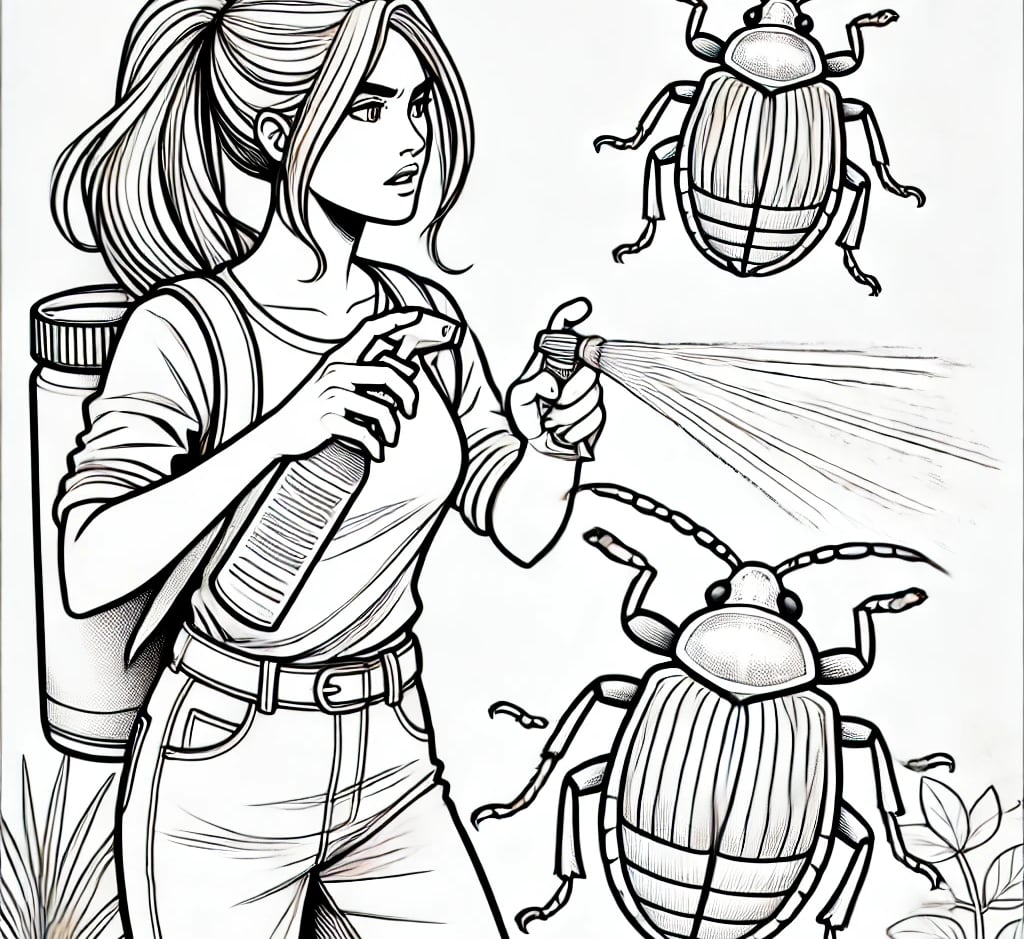Natural Pest Control Methods
natural pest control methods to protect your garden without harmful chemicals
Mary
2/23/20253 min read


Hi everyone, it’s Mary from Will’s Garden!
We’ve covered planting schedules, soil preparation, and companion planting over the past few weeks. Now, let’s talk about natural pest control methods to protect your garden without harmful chemicals! Keeping pests at bay while maintaining a healthy environment for pollinators and beneficial insects is key to a thriving, organic garden.
Step One: DIY Natural Pest Spray
One of my go-to solutions for keeping pests away is a simple, effective natural spray that you can make at home. Here’s the recipe I use:
Natural Spray Recipe:
2 gallons of water
4 tsp neem oil (Organic Cold Pressed Pure Neem Oil - Verdana Brand)
1 additional tsp of neem oil (for added potency)
2 tsp Mosquito Magician Liquid Concentrate (Mosquito Magician Liquid Concentrate - 1 Gallon)
How to Use:
Mix all ingredients well in a sprayer and apply directly to plants like sunflowers, tomatoes, squash, and other pest-prone crops.
Use this spray early in the morning 2-3 times a week to keep your plants healthy and pest-free.
Reapply every 7-10 days or after heavy rain.
I spray all my vegetable plants, sunflowers, and squash because squash bugs and sunflower maggot flies are a major issue in my area. This spray also helps control squash borers, which can be devastating if left unchecked. It’s really hard to eliminate these pests once they get out of control, so staying on top of spraying is essential.
One of the key ingredients in Mosquito Magician is garlic oil, which is amazing for repelling pests. Not only does it deter insects, but it also protects plants from being eaten by animals like deer and rabbits—they hate the strong smell of garlic essential oils! I’ve had major issues with deer and rabbits wiping out my garden in one night, so this spray is a lifesaver.
Why Neem Oil Works: Neem oil is effective because it coats insect eggs, smothering them before they hatch. Many pests, including squash bugs, tomato hornworms, and aphids, lay eggs on plant leaves, which hatch into destructive larvae. These pests tend to lay their eggs on the underside of leaves, making them hard to see. Before you know it, your plants can be devastated by an infestation. By using neem oil regularly and thoroughly coating the underside of leaves, you can prevent these pests from taking over your garden before they even have a chance to grow.
Step Two: Choosing the Right Sprayer
Applying pest control sprays can be time-consuming, but having the right tools makes a huge difference! Here are two sprayer options based on your budget and ease of use:
1. Two-Gallon Battery-Operated Sprayer ($30-$65)
This is what I use, and let me tell you—it’s a game-changer! A battery-operated sprayer takes a lot less time and is much easier on your hands compared to manual sprayers. You simply press a button, and the spray is evenly distributed without the repetitive pumping action. (Check it out here)
2. One-Gallon Pump-Up Sprayer ($10-$20)
If you’re on a tighter budget, a manual pump sprayer works well too. Just cut the recipe in half to fit the 1-gallon size. While it takes more effort, it’s still an effective option for small gardens.
No matter which one you choose, keeping pests under control naturally will make your gardening experience more enjoyable and your plants much healthier.
Final Thoughts
Using a natural pest control spray combined with the right sprayer makes pest management easy and chemical-free. Whether you invest in a battery-powered sprayer for convenience or go with a budget-friendly manual sprayer, the key is consistency and proper application.
Next week, we’ll talk about attracting beneficial insects to help naturally balance your garden’s ecosystem!
As always, happy gardening, and let’s keep growing together!
Warmly,
Mary from Will’s Garden 🌿
Solutions
Collect rainwater efficiently with our innovative systems.
Sustainability
Quality
info@willsgarden.com
1-508-375-3600
© 2025 All rights reserved.
